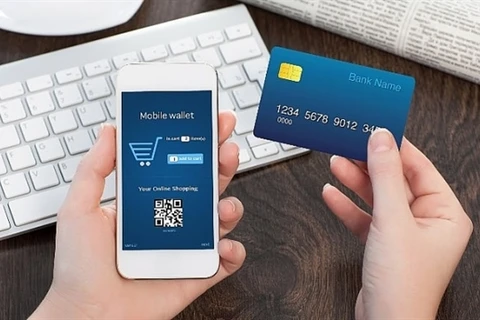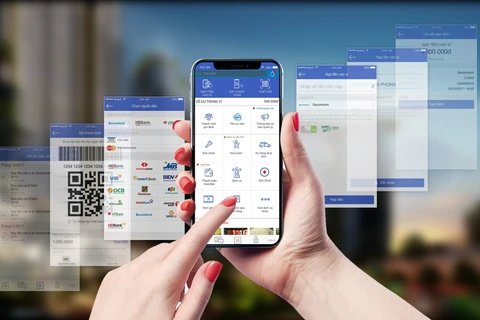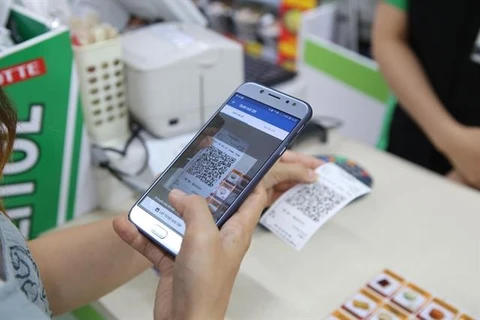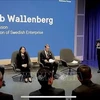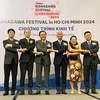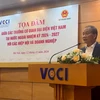 A seminar on cashless society is held in Ho Chi Minh City on June 12 to discuss cashless payment. (Photo: VNA)
A seminar on cashless society is held in Ho Chi Minh City on June 12 to discuss cashless payment. (Photo: VNA)Hanoi (VNA) – Non-cash payments continue to boom in Vietnam this year as the country has seen a surge in banking transactions and mobile payments in the first four months of the year, according to an official from the State Bank of Vietnam (SBV).
Banking transactions and mobile payments are experiencing impressive growth in Vietnam when it comes to both the number of users and value of transactions, head of the SBV’s payment department Pham Tien Dung told a seminar on cashless society held in Ho Chi Minh City on June 12.
In the first four months of the year, the number of domestic banking transactions grew 26.2 percent with value expanding 15.7 percent. As of the end of March, the number of banking accounts reached 103.1 million, up 22.4 percent from the end of 2017, Dung said.
Notably, mobile payments increased sharply by 189 percent in number and 166 percent in value from a year earlier, he added.
He attributed the growth to the development of IT and telecommunications, thanks to which banks have created a variety of new user-friendly cashless payment services, such as mobile banking, Internet banking and bankcard payment.
Vietnamese banks have quickly integrated latest technologies, including fingerprint authentication and facial recognition, into their mobile banking apps to provide customers with much more convenient experience, he added.
Nguyen Ba Diep, Executive Vice Chairman and Co-founder of MoMo, one of Vietnam’s leading providers of mobile payment solutions, said MoMo debuted 13 years ago and in the first 10 years, the e-wallet has struggled to gain access to users because most of Vietnamese preferred cash and not many shops accepted this payment service at that time.
But things have changed, Diep said, MoMo has about 20 million users today, more than half of whom started using the services over the last three years.
He further noted that the development of digital economy and the government’s policies to encourage cashless payments for public services, such as payments of taxes, tuition fees and medical services, have smoothed the way for this payment service to take off./.
VNA
